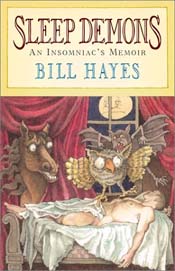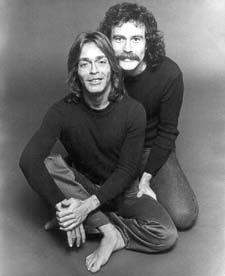 |
|
The Dissident Press in America Voices of Revolution: The Dissident Press in America by Rodger Streitmatter, Columbia University Press, 335 pages, $18.50.  Rodger Streitmatter is professor of journalism at American University. He has written extensively on the history of American journalism in such books as Unspeakable: The Rise of the Gay and Lesbian Press In America (1995) and Mightier Than the Sword: How the News Media Have Shaped American History (1997).
Rodger Streitmatter is professor of journalism at American University. He has written extensively on the history of American journalism in such books as Unspeakable: The Rise of the Gay and Lesbian Press In America (1995) and Mightier Than the Sword: How the News Media Have Shaped American History (1997).
Voices of Revolution: The Dissident Press In America chronicles "the contributions that publications outside the mainstream of American journalism can make." The dissident press, Streitmatter tells us, is different from "alternative publications" whose purpose is to sell ads or provide a more "hip" view of the world. Rather, "in order for a publication to merit the mantle of 'dissident,' at least in this book, it not only had to offer a differing view of society but also had to seek to change society in some discernible way. That publication had to set out - intentionally and without apology - to champion a particular cause. The publications' primary purpose must have been, in short, to effect social change." With mixed results, "the dissident American press has, for almost two centuries, served as a robust and effectual force that has had substantial impact on the social and political fabric of this nation.
Since much of the dissident papers were one-man or one-woman operations, Voices of Revolution blends the history of the press with the story of the people who made it happen. Among the heroes of the press were William Lloyd Garrison, who fought slavery in The Liberator; Ida Bell Wells, who challenged lynching in the Memphis Free Speech; Emma Goldman, who proclaimed anarchism in Mother Earth; Robert S. Abbott, who urged southern Blacks to move north in The Chicago Defender; and Margaret Sanger, who preached birth control in her Birth Control Review. All of them faced opposition from the government and from the mainstream media. One of the genre's most constant foes, FBI director J. Edgar Hoover, actively fought the dissident press for much of the twentieth century, using the powers of his Bureau to bring down the anarchist, counterculture and black power press, among others. A chapter in Voices of Revolution deals with the post-Stonewall, lesbian and gay press. The Stonewall Uprising, Streitmatter writes, "spawned the in-your-face gay newspapers that voice outrage, demanded justice, and shrieked at the top of their lungs. . . . The most important achievement of the [gay dissident] publications was not amassing large numbers . . . but creating an arena in which lesbians and gay men could discuss what their social movement hoped to be. Editors and writers stood on the front lines of the ideological warfare, introducing the themes that would define this highly controversial social revolution for decades to come."
The closest thing we have to the dissident press these days are the small "zines" and on-line publications. Though Streitmatter hopes that "the mainstream news media should stop ignoring the dissident press and start emulating it," the "zines" and the on-line publications are the only outlets that seem willing to carry this proud heritage into the twenty-first century. Perhaps Streitmatter's book will encourage others to follow their example. Sleep Demons: An Insomniac's Memoir by Bill Hayes, Washington Square Press, 355 pages, $24.95.
 According to the National Sleep Foundation, at least 40 million Americans suffer from sleep disorders. Among the 40 million is Bill Hayes, a lifelong insomniac for whom "on some nights, a good long yawn is as close as I come to a good night's sleep".
According to the National Sleep Foundation, at least 40 million Americans suffer from sleep disorders. Among the 40 million is Bill Hayes, a lifelong insomniac for whom "on some nights, a good long yawn is as close as I come to a good night's sleep".
Sleep Demons: An Insomniac's Memoir combines personal narrative with a detailed discussion of the various sleep disorders that have plagued humanity since the days of Morpheus. Though this critic, a mild insomniac, found much to relate with Bill Hayes's life story, even those who are blessed with undisturbed sleep will find much to learn and enjoy in this fascinating book. Is insomnia hereditary? Hayes certainly thinks so: "If there's such a thing as an insomnia gene, Dad passed it on to me, along with his green eyes and Irish melancholy." "I grew up in a family where the question 'How'd you sleep?' was a topic of genuine reflection at the breakfast table." Even worse, the older Hayes was a Coca-Cola bottler for much of his son's "over-caffeinated" childhood: "I drank so much Coca-Cola growing up, I cannot take a sip of it today. I've often wondered if all that sugar and caffeine altered my neurochemical makeup, turning me into the alert, anxious man I am. I suspect it still runs in my veins at night, nourishing sleeplessness."
Though Hayes's doctor told him there was no "cure" for his condition, he did say he had "psychophysiological insomnia". In other words, "I was the kind of person who worried about the quantity and character of my sleep, not to mention the precise wording of my diagnosis. . . . Insomnia is part of [my] psychological makeup". These days, Hayes "sleeps better than ever . . . in part, because I've learned so much about sleep and insomnia, but also because I'm happier, more satisfied with my life and work." As part of Bill Hayes's "life and work", Sleep Demons is guaranteed to give its author sweet dreams. Based on his own experiences and studies by Dr. Dr. Nathaniel Kleitman and other authorities, Hayes's book covers the range of sleep disorders, not only the ones that Hayes himself suffered from but also jet lag, sleep apnea (obstructive sleep apnea syndrome - "a respiratory disorder that causes people to stop breathing for short periods while sleeping"), sleeptalking (somniloquy) and narcolepsy ("irresistible attacks of sleep"). If written by an inferior author, this is the kind of stuff that could put you to sleep (I couldn't resist that) but happily Hayes is the kind of author who knows how to maintain his readers' interest. Sleep Demons is a that should be read and appreciated by all, not just gays, insomniacs or a combination of the two. |



 Lige Clarke and Jack Nichols, 1973, editors of GAY
Lige Clarke and Jack Nichols, 1973, editors of GAY